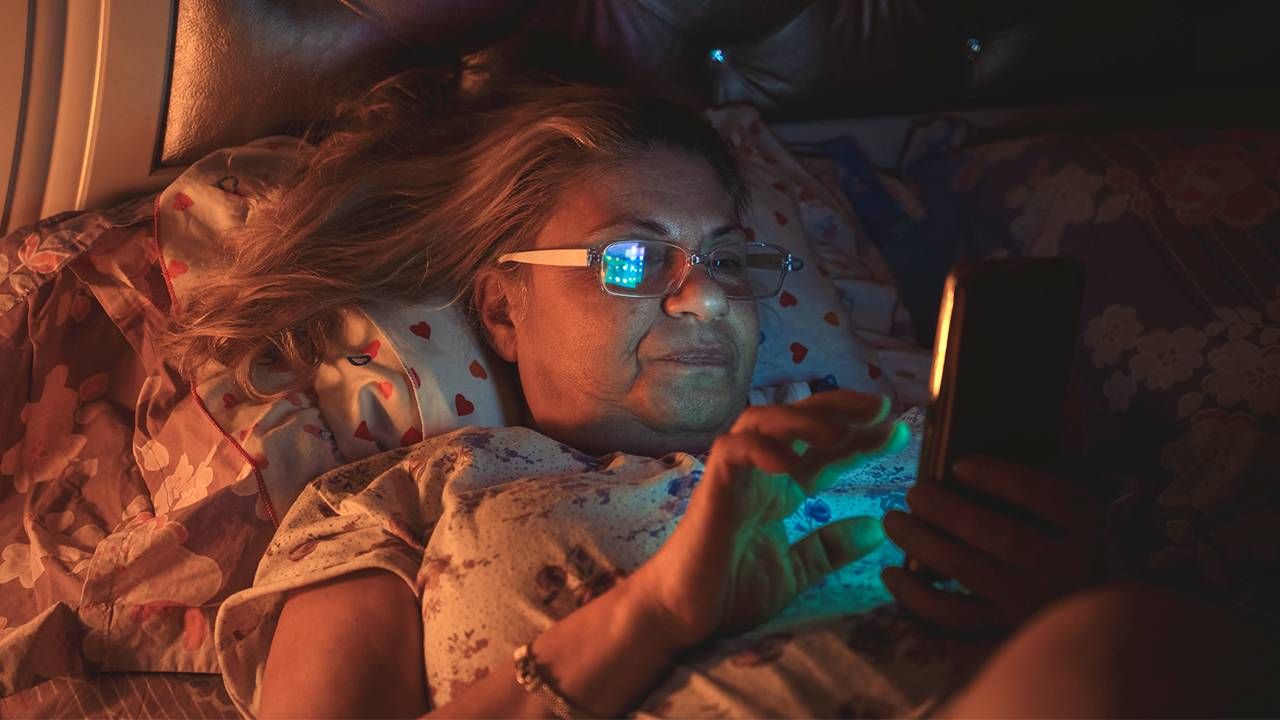Perimenopause: Why We Don’t Talk About It and Why We Should
Our mothers didn’t talk about it. Their mothers didn’t either. So, we haven’t talked about it. Here’s why women need to open up about this shared experience.
Editor’s note: In honor of Menopause Awareness Month, we are running a series of stories about menopause. Our goal is to illuminate a topic that is sometimes shrouded in misinformation and shame. We hope to change that.
When chatting with a friend one day, I mentioned that I had felt really angry for no particular reason, then in no time burst into tears. I was chalking it up to stress.
"Could it be due to perimenopause?" she asked.

I hadn't even thought about that. As a writer who is curious about, well, nearly everything, I began to do some research.
Turns out the mood swings were being caused by perimenopause, the period of time that leads up to menopause. I even had my doctor confirm it. But I also found that there are as many as 66 symptoms of perimenopause.
Sixty-six.
I realized that while my girlfriends and I would talk about just about anything, we weren't really talking about perimenopause — so I started to. I found out that my peers were also suffering from hot flashes and night sweats (as was I), but some had it way worse than I did and others barely had them, if at all.
For many of us, our mothers may have taught us about getting our periods, but they didn't touch on this important time of life. I remember my grandmother referring to it as "The Change." And, because I was in my 20s at the time, I had no idea what she was talking about.
Why Don't We Talk About Perimenopause?
According to Dr. Stephanie Faubion, medical director of The North American Menopause Society, while women are normalizing the topic of menopause today, perimenopause is a little harder. "Women can enter perimenopause anywhere from their early forties to their early fifties; there isn't a [definite] time frame," she explains. "Some women may have no symptoms at all, whereas others may have a number of symptoms."
These symptoms can include:
- Hot flashes
- Night sweats
- Insomnia
- Mood disturbances
- Palpitations
- Hair changes
- Body aches
- Menstrual irregularities
- Weight gain
Dr. Nicole E. Williams, founder of the Gynecological Institute in Chicago and author of the book, "This Is How You Vagina: All about the Vajayjay and Why You Probably Shouldn't Call It That," says, "The problem is that most anything that is essentially female — menstruation and menopause — is seen in a negative light."
"It's imperative that we normalize these things and not make it seem like we are experiencing some loss of youth. At this point in life, we know who we are and what we can do."
Most women don't get any formal education on perimenopause, says Faubion. "This is because of a number of reasons including the fact that most obstetric/gynecology, internal medicine and family medicine residents only receive one to two hours of education on menopause during the residency training," she notes.
Studies have shown that most report physicians feeling unprepared to deal with patients who are experiencing menopause symptoms, Faubion says.
While Faubion and Williams talk about perimenopause with their patients, not all physicians do. Believe me, I've asked my friends if their doctors have ever brought up the topic. Unless the patient does, the doctors may not.
Why Talking About It Is Important
"We should be able to have open conversations about a universal event in women's lives — one hundred percent will experience menopause if they live long enough," says Faubion. "This time can be stressful for many women, in part because the symptoms they are experiencing may be unexpected, but also because some of the symptoms can be very disruptive."
The good news is, she says, there are ways to manage those symptoms. "So, no one needs to suffer through this time not understanding what's happening or what can be done about it. Empowering women with knowledge about this transition is important and allows women to enter menopause feeling more confident," says Faubion.
Williams agrees: "We should be talking about this now because it will happen to half of the world's population at some point in time. It's imperative that we normalize these things and not make it seem like we are experiencing some loss of youth. At this point in life, we know who we are and what we can do. So what if you have a hot flash and your period may be wonky? You have the life experience and expertise to thrive!"
FYI, You Can Still Conceive
Besides learning how to manage their perimenopausal symptoms, women also need to know, as Williams says, that they may still be able to get pregnant during this time. "But it is much less likely. If you really don't want a baby, it is still recommended to use contraception," she says.
Believe it or not, Faubion says, "The second most common time of unwanted pregnancy beyond the teens is the forties."
The biggest complaint Williams' patients have is irregular periods, which could last for years. If you have irregular periods with perimenopause and it's upsetting you or causing lifestyle issues, she suggests you talk with your practitioner. There are ways they can help you manage them.
So talk about perimenopause. If your physician isn't knowledgeable about it, Faubion says you can find one that is certified by The North American Menopause Society on www.menopause.org.
For women still frustrated about this time in life, Williams says, "Remember, this is normal. Youth is totally overrated. You look amazing. You got this!"


